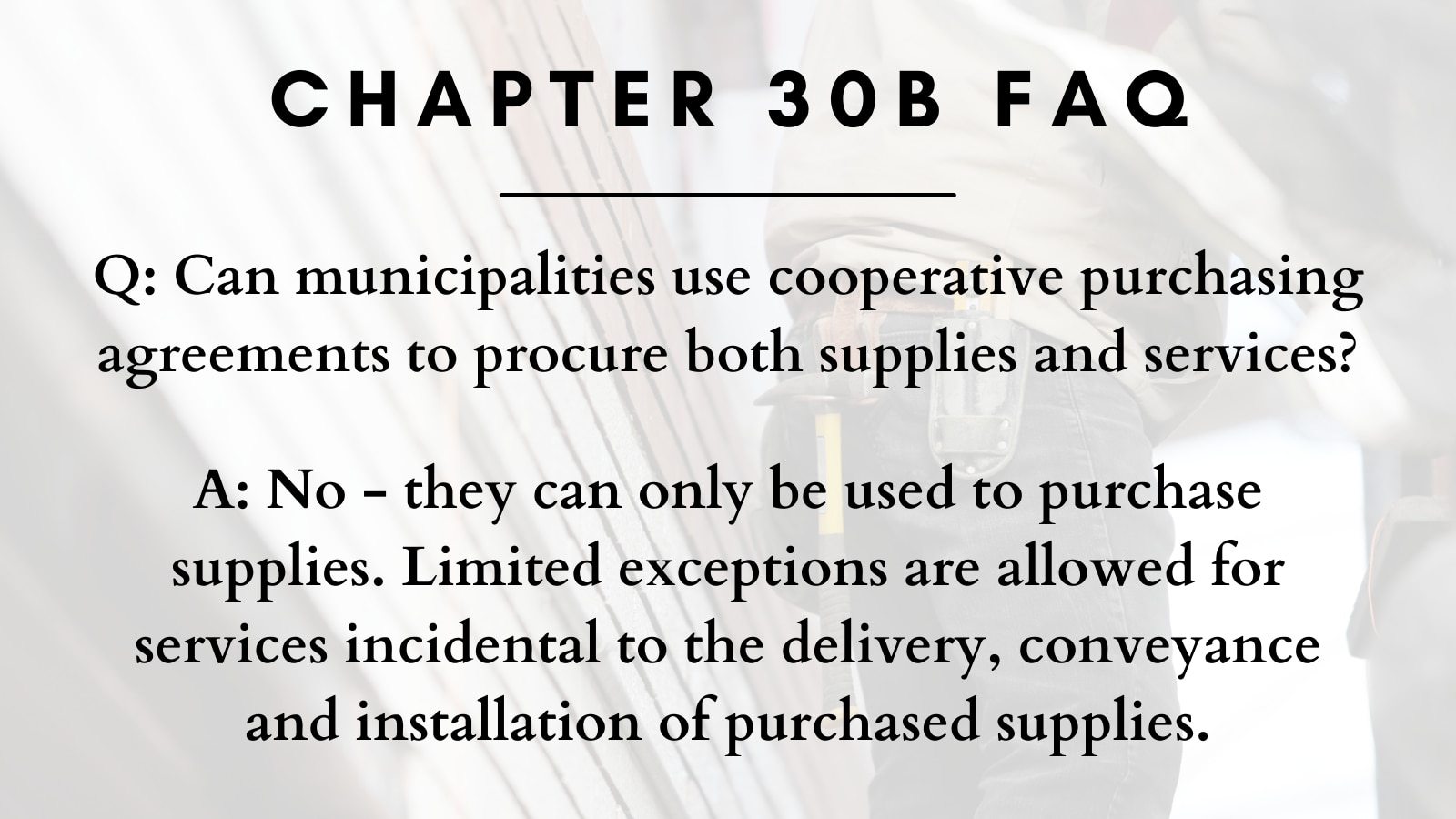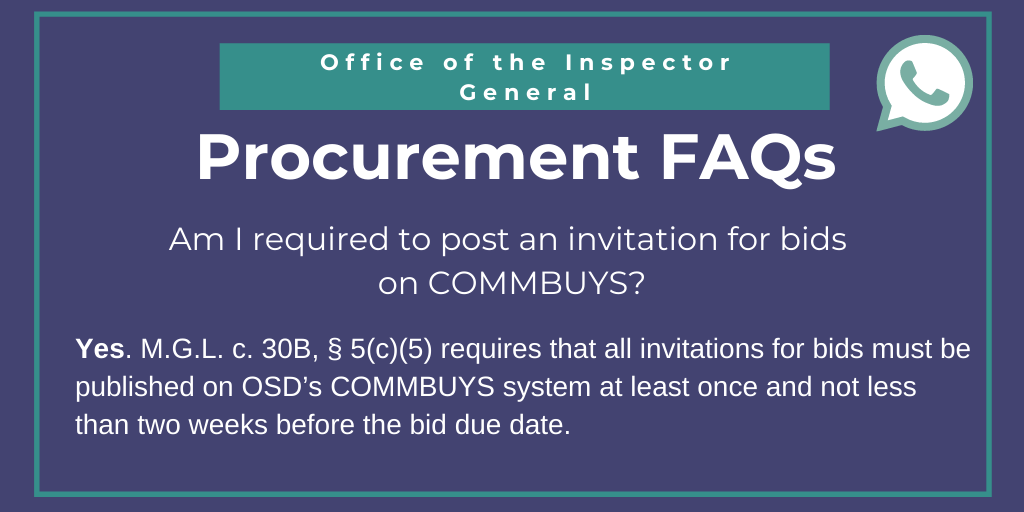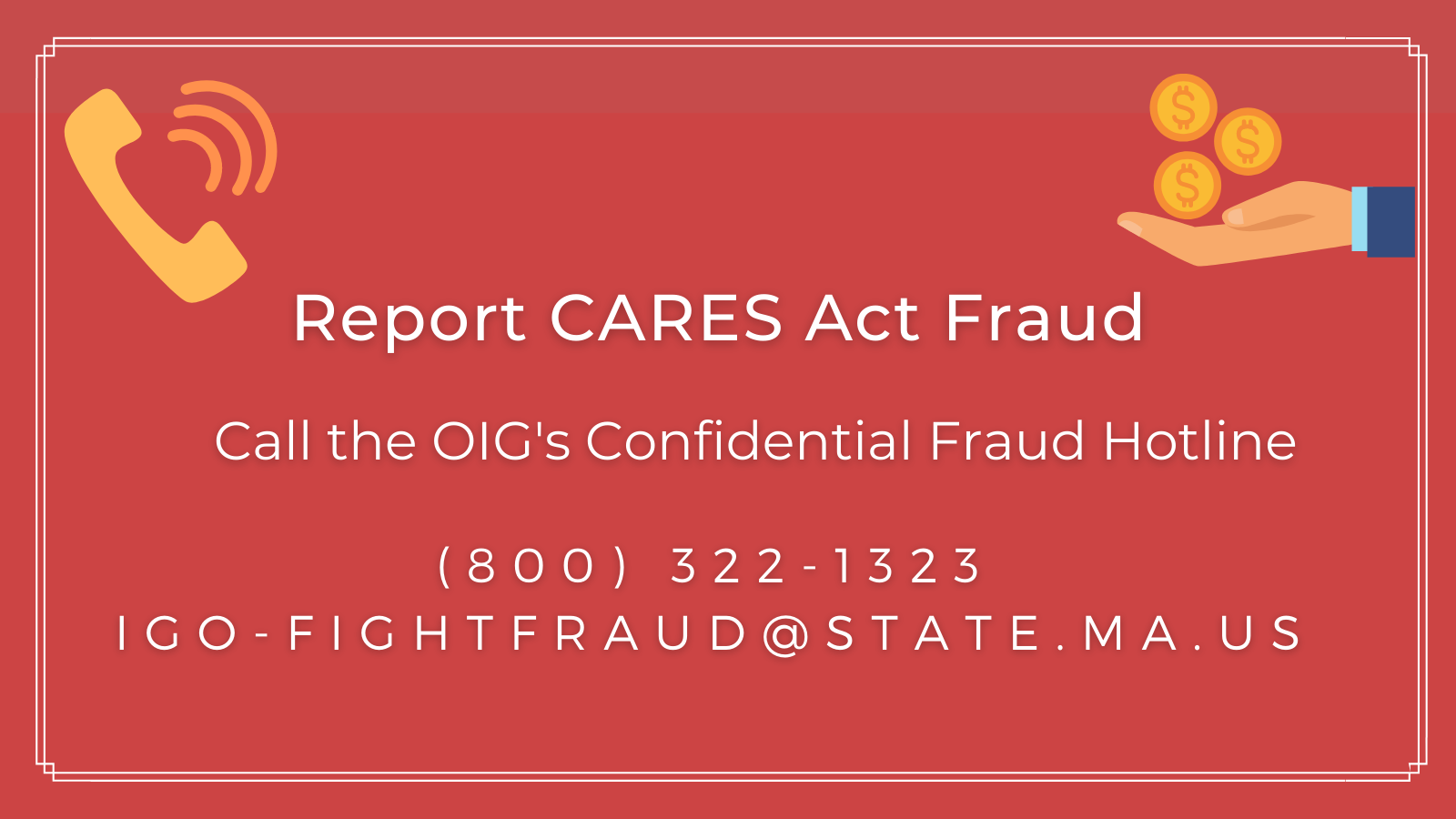Disposing of Real Property Acquired by Eminent Domain under Chapter 30B
Q: Our town recently acquired a parcel of land by eminent domain. Abutters of the parcel are interested in acquiring a part of the parcel valued at $100,000. Would the town’s sale to the abutters be exempt from Chapter 30B because the land was acquired by the town by eminent domain?
A: No. The sale of the property to the abutters would not be exempt from Chapter 30B; it would be subject to Chapter 30B’s requirements for the disposition of real property.
Chapter 30B does not apply to the acquisition or disposition of property governed by specific provisions of other statutes, including eminent domain takings. (See M.G.L. c. 79 for eminent domain procedure requirements.) However, eminent domain law would not govern the town’s sale of property that it had acquired previously via eminent domain. The town would therefore need to follow Chapter 30B’s requirements for the sale of real property in disposing of the parcel. Under Chapter 30B, a municipality must follow an advertised proposal process to dispose of real property with a value greater than $35,000. See M.G.L. c. 30B, § 16.
This proposal process includes having the property appraised through a method customarily accepted as valid by the appraising profession prior to advertising. See M.G.L. c. 30B, § 16(b). The town must then place an advertisement inviting the submission of proposals in a newspaper with a circulation sufficient to inform people in the affected locality. See id. at § 16(d). Note that although Section 16 requires that a municipality solicit proposals for the disposition of property, the town has the discretion to structure the solicitation so that it is, in effect, an invitation for bids. The solicitation can set out simple criteria and award the contract to the qualified proposer offering the highest price for the property.
The town must publish the advertisement at least once a week for two consecutive weeks, and the last publication must occur at least eight days before the opening of the proposals. Id. In addition, if the property is more than 2,500 square feet, the town must publish an advertisement in the Central Register at least thirty days before the auction. Id. These advertisements must specify the location of the property, the terms and requirements of the proposed transaction, and the time and place for the submission of proposals. Id. After the selection of a person as party to the real property transaction, the town must publish the name of the purchaser and the transaction amount in the Central Register. See id. at § 16(f).

Procuring Snow Melters under Chapter 30B
Q: I am the director of my town’s Department of Public Works. I know that snow plowing is an exempt service under Section 1(b)(17) of Chapter 30B, but we would like to buy or rent snow melters. Does Chapter 30B exempt the procurement of snow melters in the same way the statute exempts snow plowing?
A: No. Section 1(b)(17) of Chapter 30B is very specific and exempts only “a contract for snow plowing by a governmental body” from the procedural requirements of the statute. The purchase or lease of snow-control supplies, including snow melters, is not exempt. Therefore, your jurisdiction must follow the provisions in Chapter 30B when buying or leasing a snow melter.
In extreme circumstances, snow melters could be necessary to protect the health and safety of people or property. In such a situation, a jurisdiction could consider procuring snow melters under the emergency procurement provisions in Section 8 of Chapter 30B. Remember, however, that Section 8 limits an emergency procurement to the supplies or services necessary to meet the emergency and that emergency procurements must conform to Chapter 30B requirements to the extent practicable. Please see Chapter 6 of the OIG’s Chapter 30B Manual: Procuring Supplies, Services and Real Property for a detailed explanation of your obligations regarding emergency procurements.
Also, note that a lack of planning does not constitute an emergency. You are obligated to act in the best interest of your jurisdiction by planning for snow events. This ensures that snow accumulation does not become an emergency during and after every storm. The emergency provisions of Chapter 30B are meant to deal with events urgently when “the time required to comply with a requirement of this chapter would endanger the health or safety of the people or their property ” See M.G.L. c. 30B, § 8. We interpret this to mean that emergency provisions are intended to apply to unexpected or unanticipated events. As a result, Massachusetts communities cannot claim that winter snow accumulation is an unanticipated event.
We recommend that, to the extent possible, jurisdictions anticipate their needs in advance of the winter season. For example, although snow amounts vary from year to year, jurisdictions can make decisions about winter supplies and services based on past usage and reasonable projections of future needs. It is better to plan ahead and have contracts in place than to rely on a last-minute search.
Finally, we recommend that jurisdictions use an open, competitive process whenever possible, even to procure exempt services like snow plowing.
Buying Used Equipment under Chapter 30B
Q: My Department of Public Works needs to purchase a backhoe and a pickup truck. Does Chapter 30B allow us to buy used equipment in lieu of buying or leasing new equipment?
A: Yes. You may purchase used equipment under Chapter 30B; the statute does not require that jurisdictions buy or lease only new supplies. In fact, acquiring used equipment may be the most cost-effective option for your jurisdiction. However, drafting purchase descriptions and specifications could be more complicated for used equipment than for new equipment.
The challenge is drafting specifications that will result in vendor bids or price quotes for equivalent items. Receiving those kinds of submissions will allow you to perform what is referred to as an “apples to apples” comparison of the used items available. To do this, you must draft specifications that outline in detail what you want and establish specific parameters. For example, you can specify that you want a Brand X or Brand Y backhoe in good condition as defined by a particular industry standard. This will provide vendors with specific information about what you want to purchase. Remember that you must provide a written justification if you decide to use proprietary specifications and that you must keep this document in your procurement file. See M.G.L. c. 30B, § 14.
When preparing solicitations for used equipment, you should also include details about what you consider to be equivalent supplies. For example, is a pickup truck with 80,000 miles on the odometer and a body in fair condition that needs engine repair worth the same to your jurisdiction as a pickup truck with 100,000 miles in excellent condition? What if they are different vehicle makes and models? Including as much detail as possible about your parameters and requirements will help ensure that your jurisdiction gets what it needs through a fair, competitive process.

Expending CARES Acts Funds under Chapter 30B
Q: My governmental body received funds from the federal government as part of the federal Coronavirus Aid, Relief, and Economic Security (CARES) Act. If we do not use these funds by the deadline set by the CARES Act, we must return the money to the federal government. This deadline is imminent, and we now have insufficient time to comply with the procedural requirements of Chapter 30B. May my governmental body expend these funds on an emergency basis?
A: No. The emergency provisions of Chapter 30B would not apply under these circumstances. Chapter 30B permits an emergency procurement, subject to certain limitations and procedures, “[w]henever the time required to comply with a requirement of this chapter would endanger the health or safety of the people or their property ” M.G.L. c. 30B, § 8.
Insufficient time to conduct a procurement – without more – does not qualify as grounds to conduct an emergency procurement under Chapter 30B.
Governmental bodies should carefully monitor any deadlines for the expenditure of federal funds and ensure they begin procurements early enough to satisfy the requirements of Chapter 30B.

Additional Resources
Contact for OIG Bulletin, February 2021: Frequently Asked Questions
Online
Phone
Available 8:30 a.m. to 4:30 p.m., M-F. Our confidential Hotline is for public employees and individuals with Chapter 30B procurement questions. Direct questions related to design and construction procurement to the Attorney General’s Office.
Address
| Date published: | February 25, 2021 |
|---|
